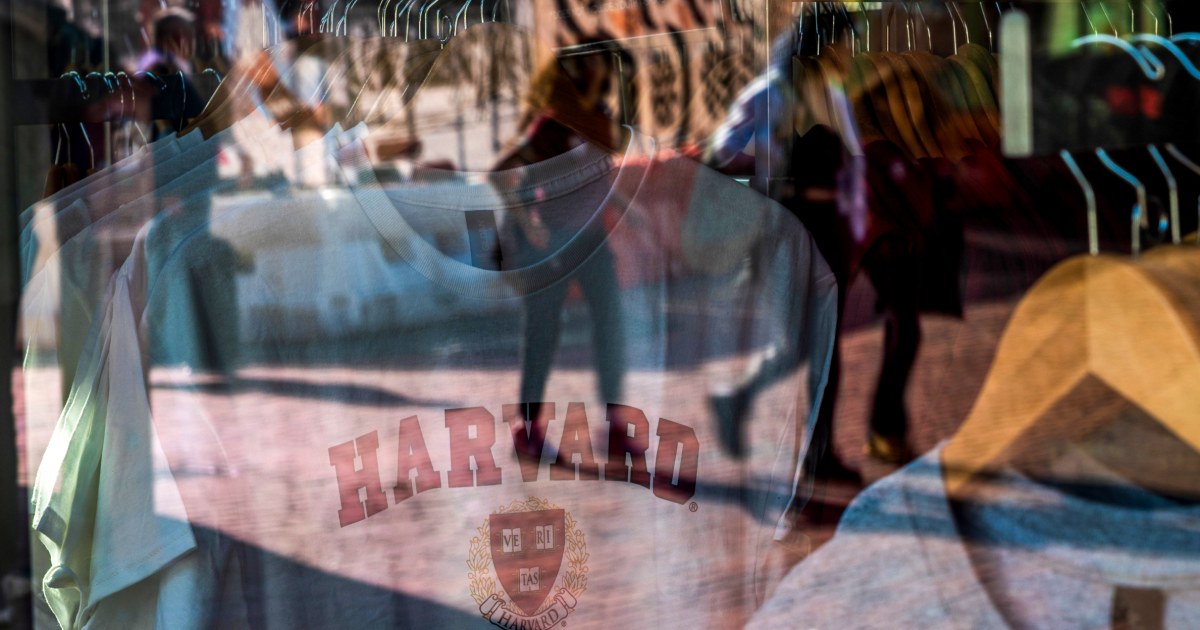Washington
A climate cash spending spree is about to get underway in Washington state – New Hampshire Bulletin

More than a year before Democrats in Congress approved a massive climate law last year, Washington state enacted the nation’s second cap-and-trade program that will provide billions of dollars for carbon reduction and environmental justice projects.
The funding is something climate activists have been seeking for years – if not decades – and state leaders and national experts say the state and federal efforts are largely complementary. But the unprecedented sums could also test the state’s capacity to administer the slew of new and newly flush programs.
“Can we use all this money? There’s so much money now,” said Becky Kelley, a climate policy adviser to Washington Gov. Jay Inslee, a Democrat. “The answer is yes. There are a whole lot of new resources, but we can put all of them and more to use.”
The Washington law, enacted in May 2021, created a market for carbon emissions from the state’s largest polluters. Through what the state calls its cap-and-invest program, it holds four auctions a year, where companies regulated under the program can buy allowances for carbon emissions. The state then uses the money from those sales for several climate and environmental justice initiatives.
The first quarterly auction for carbon emission allowances brought in $300 million for the state. Lawmakers projected the fund would provide more than $2 billion over the next two years. The next auction is scheduled for May 31.
The federal climate law, which President Joe Biden signed last summer, could bring in an additional $18 billion for the state by the end of the decade, Kelley said, citing an analysis from Rocky Mountain Institute, a nonpartisan group that advocates for transitioning away from fossil fuels.
The federal climate law, dubbed the Inflation Reduction Act despite analyses it would have a negligible impact on inflation, includes dozens of grant programs available to states, including the $27 billion Greenhouse Gas Reduction Fund and a $5 billion Climate Pollution Reduction Grants program.
Easy compatibility
In Washington, and other states that had been more aggressive on climate policy and spending before the unprecedented federal funding became a reality, the federal influx is easily compatible with existing state-level programs, said Casey Katims, the executive director of the U.S. Climate Alliance, a coalition of 24 governors who have committed to certain climate goals.
“A lot of these funds can be blended and braided and stacked to strengthen the work across each of the different programs,” Katims said. “Our states are leading on efforts to bring all of these resources to bear to decarbonize our economy across sectors.”
Joshua Basseches, a public policy and environmental studies professor at Tulane University who focuses on state-level climate policy, said the federal law could only build on state climate efforts.
“It’s hard to imagine a state adopting a policy that could undermine the Inflation Reduction Act,” he said.
Carrot and sticks
The bulk of the federal funding, about $260 billion, is in tax credits to help businesses and consumers buy electric vehicles, make their homes and buildings more energy efficient and take other steps to decarbonize.
That works well with Washington’s market-based system, which imposes a cost on carbon emissions, said former state Sen. Reuven Carlyle, a Seattle Democrat who was a lead sponsor of the law.
The state program is meant to alter the cost-benefit analysis for businesses regulated by the law that may be considering taking steps toward reducing their carbon output.
If the state program is a proverbial stick that makes carbon emissions costlier, the federal law, with its bevy of tax credits, is “a fully carrot-oriented policy” that makes decarbonizing cheaper, Carlyle said in an interview.
“It builds on our state policy framework,” Carlyle said of the federal climate law. “You could not have a better nexus of value between the state and the federal climate policy direction now.”
Rather than pay for allowances to emit carbon, regulated companies may decide instead to bear the cost of electrifying their vehicle fleet, switching to solar power, purchasing a new boiler system or taking other measures, Carlyle said. The federal tax credits reduce those costs.
“If you’re a company that is subject to the cap-and-invest program, you have to buy these allowances, which puts a cost on you,” Basseches said. “You have to pay a penalty for polluting. Whereas the Inflation Reduction Act creates these enormous incentives.”
The funding available through the federal law also amplifies state efforts, Kelley said.
In Washington, the state is projecting it will receive $85 million from the federal law and plans to spend $75 million from its cap-and-invest program on rebates to retrofit homes to be more energy efficient.
“So in combination, we reach more people,” Kelley said. “If it was only the federal dollars, you get $85 million worth. When you add [state funding], you nearly double that.”
Capacity to do all the work
But applying for billions in federal grants, determining what those funds can be used for and then making specific funding decisions takes a lot of work for state agencies.
In Washington, those demands come at a time when state officials will already be stretching to implement the state’s climate funds.
“That’s a good question to be asking,” Basseches said. “Do states, and does Washington, have the resources it needs – and it really comes down to the state budget and the size of the agencies, how many staff are in these agencies? Does it have the capacity to do both?”
Basseches said he expected Washington state, which has a longtime focus on climate, would be better equipped than most.
But state officials there said administrative capacity would still be a challenge.
“There is a capacity limit, in terms of delivery of programs on the part of state agencies,” Washington House Transportation Committee Chairman Jake Fey, a Democrat, said. “It’s just a lot to ask of them. And of course, the Legislature, we’re already always urgent about seeing the money gets spent, put into action, so the capacity issue is real.”
Agency directors have complained that other agencies have “poached” workers from each other, Fey said.
The state should consider private sector contractors to help set up programs and get money flowing, he said.
“I think that is a tremendous challenge,” Kelley said about the state’s capacity to start up different programs and wisely prioritize funding.
State officials are still determining what their capacity needs are, she added.
The federal spending law does include some planning grants and other resources to help states make the best use of federal dollars, Katims said.
Climate Alliance governors are aware of the issue, he added.
“States understand that we need to be investing in strengthening capacity to be able to maximize these laws,” Katims said. “There’s a recognition that we need to coordinate across levels of government to deepen those relationships.”

Washington
Washington Capitals star T.J. Oshie announces retirement from NHL
Washington
North Hagerstown’s Rian Johnson headlines 2025 All-Washington County Girls Track & Field
All-Washington County Girls Track & Field First Team
Here are the 2025 All-Washington County Girls Track & Field first-team selections.
Here are The Herald-Mail’s 2025 All-Washington County Girls Outdoor Track & Field selections.
Rian Johnson, North Hagerstown
Athlete of the Year
Johnson, a senior, emerged as the greatest distance runner in county history on the track. She set county records in the 800 (2:12.73), 1,600 (4:43.51) and 3,200 (10:25.74) and won Class 3A state gold in the 1,600 and 3,200 and silver in the 800. Her state-winning time of 4:45.88 in the 1,600 set a meet record for all classifications.
All-Washington County First Team
Alaina Barnhart, Boonsboro
Barnhart, a junior, captured CMC Small School, county and 1A West region titles in the 100.
Madison Booth, Hancock
Booth, a freshman, won CMC Small School and 1A West region titles in the high jump before tying for second at states.
Anna Chamberlin, North Hagerstown
Chamberlin, a junior, ranked No. 1 in the county in the high jump (5-3), 100 hurdles (16.19) and 4×800 (9:35.59) and No. 2 in the triple jump (32-5 1/2). In Class 3A, she tied for second at states in the high jump.
Abigayle Fluharty, Boonsboro
Fluharty, a junior, ranked No. 2 in the county in the 200 (26.24) and 400 (58.81). In the 1A West region championships, she placed second in the 400 and fourth in the 200.
Cora Gentzel, Smithsburg
Gentzel, a senior, earned Class 1A state gold in the 4×800, silver in the 3,200 and bronze in the 1,600.
Chloe Gietka, South Hagerstown
Gietka, a sophomore, ranked No. 1 in the county in the long jump (17-0) and triple jump (37-0 1/4). In Class 3A, she placed fifth at states in the triple jump and seventh in the long jump.
Lilian Hade, Smithsburg
Hade, a sophomore, placed first at the county championships and third in the 1A state meet in the pole vault. She also placed seventh at states in the 400.
Kayla Hawbecker, Smithsburg
Hawbecker, a senior, scored at states in five events in Class 1A, placing first in the 4×400 and 4×800, fourth in the 1,600 and 3,200 and eighth in the 800.
Jenna Howe, Smithsburg
Howe, a senior, ranked No. 1 in the county in the 100 (12.58), 200 (25.70) and 400 (57.95) and was a member of three No. 1 relays — 4×100 (50.22), 4×200 (1:45.14) and 4×400 (4:04.41). She scored at states in all six events in Class 1A, highlighted by gold in the three relays and silver in the 400.
Kailyn McCauley, Clear Spring
McCauley, a senior, ranked No. 1 in the county in the shot put (36-8) and No. 4 in the discus (95-7). In the shot put, she was the 1A state runner-up and the CMC Small School, county and 1A West region champion.
Sarah Mohler, Boonsboro
Mohler, a freshman, placed second in the state in Class 1A in the discus and seventh in the shot put. She was the 1A West region runner-up in both throws.
Alexandria Spithaler, Smithsburg
Spithaler, a senior, ranked No. 1 in the county in the pole vault (10-0) with her Class 1A state runner-up performance.
Lauren Stine, North Hagerstown
Stine, a senior, ranked No. 2 in the county in the 800 (2:19.58), 1,600 (5:02.23) and 3,200 (10:39.52) and was a member of the No. 1 4×800 (9:35.59). In Class 3A, she placed fourth at states in the 3,200 and fifth in the 1,600.
Sidney Turner, Boonsboro
Turner, a junior, ranked No. 1 in the county in the discus (123-4) and No. 3 in the shot put (34-6). She won CMC Small School and county titles in the discus.
All-Washington County Second Team
- Kiara Barker, Fr., Williamsport, throws
- Dayanah Brunson, Fr., North Hagerstown, hurdles
- Grace Ellis, Sr., Smithsburg, middle distance/hurdles
- Hadley Elwood, So., Clear Spring, jumps
- Ella Fisher, Sr., Smithsburg, distance
- Ella Hajel, Sr., North Hagerstown, distance
- Juliet Hodge, Fr., Clear Spring, sprints
- Rhianna Ignasiak, Sr., South Hagerstown, hurdles
- Emma Joyal, Sr., Smithsburg, jumps/hurdles
- Taylor King, Sr., Smithsburg, hurdles/sprints
- Katelyn Moffit, So., Clear Spring, throws
- Brielle Morales, Jr., Clear Spring, hurdles
- Alaina Pate, Sr., Smithsburg, sprints
- Audrey Roberts, Fr., Clear Spring, jumps
- Annabelle Schaberl, Jr., North Hagerstown, sprints/jumps
- Olivia Smith, Jr., Clear Spring, jumps
Washington
Commanders could trade $68 million disgruntled star

The Washington Commanders have an unhappy star in wide receiver Terry McLaurin.
The former Ohio State wideout has one year remaining on his contract, and he wants a new deal before the start of the season.
Bleacher Report writer Kristopher Knox thinks the Commanders could trade McLaurin to the Arizona Cardinals for pass rusher Zaven Collins if a deal isn’t struck.
READ MORE: Commanders’ Dan Quinn shouts out Capitals coach for major honor
“The Arizona Cardinals might not seem like an obvious candidate for McLaurin because they added their No. 1 receiver when they drafted Marvin Harrison Jr, in 2024,” Knox wrote.
“What the Cardinals don’t have, however, is a top-tier receiver who can complement Harrison and help get more out of quarterback Kyler Murray. McLaurin could be that, and now could be the perfect time to add him.
“Murray and head coach Jonathan Gannon are both entering a pivotal season. Murray hasn’t performed at a Pro Bowl level since 2021 and may need help to get back to the form he had before his 2022 ACL tear. Gannon has delivered just 12 wins in his two seasons at the helm.
“Adding McLaurin could help Murray return to his pre-injury production and, potentially, help Arizona get over .500. To sweeten the pot, the Cardinals could include edge-defender Zaven Collins, who had five sacks last season but could be a potential 2026 cap casualty.
“The Cardinals could save $4.4 million this year by trading Collins, and they’ve added Calais Campbell, Josh Sweat and rookie first-round pick Walter Nolen III to their pass-rushing rotation this offseason.
“Washington could be very interested in a little edge help.”
The Commanders will hope to get a new deal done with McLaurin in the near future.
READ MORE: Commanders coach eyes growth for second-year linebacker
Stick with CommanderGameday and the Locked On Commanders podcast for more FREE coverage of the Washington Commanders throughout the 2025 offseason.
• Deebo Samuel’s viral post-practice work has Commanders fans buzzing
• Commanders linked to 4-time Pro Bowl RB in new report
• NFL insider says Commanders braced for beating vs Eagles in wild claim
• Former Commanders defender announces retirement after 10-year career
-

 Politics1 week ago
Politics1 week agoMichelle Obama facing backlash over claim about women's reproductive health
-

 Finance1 week ago
Finance1 week agoHere's what will boost your feeling of financial well-being the most, researchers say
-

 West3 days ago
West3 days agoBattle over Space Command HQ location heats up as lawmakers press new Air Force secretary
-

 Technology1 week ago
Technology1 week agoWhy do SpaceX rockets keep exploding?
-

 World1 week ago
World1 week agoTwo killed in Russian attacks on Ukraine before possible talks in Turkiye
-

 World1 week ago
World1 week agoNcuti Gatwa Bids Doctor Who Farewell as Finale Ends With a Most Surprising Twist — Grade It!
-

 News1 week ago
News1 week agoTrump administration continues to target international students. What to know and what could be next.
-
Vermont1 week ago
MMU’s Bea Molson returns to glory, CVU girls claim doubles at tennis championships




















